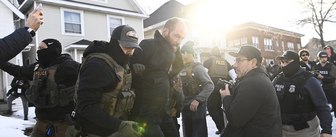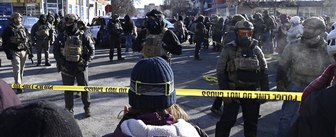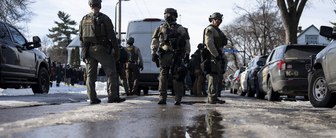YouGov and Campaign Zero, a nonprofit advocacy group focused on policing, fielded a survey in January asking registered voters about gunshot detection technology, specifically the kind sold by the company ShotSpotter. Several cities, such as Houston, have already installed this type of technology in their neighborhoods to attempt to detect the sound of gunfire and alert the police to its presence. We found that most voters haven’t heard of ShotSpotter, and want independent validation before outside tech is used in policing.
Although about 100 U.S. cities use or are currently demo-ing some form of ShotSpotter, very few people have heard much about the technology. We asked voters how much they had heard about ShotSpotter, and only about 11 percent reported they’d heard “a great deal”; 57% had heard “not very much” or nothing. While gunshot-detection technology is designed mostly for cities and crowded areas, where the sound of a gunshot may be particularly difficult to detect and locate without technological aid, urban-area voters are only slightly more likely to say they are at all familiar with news about the technology than are voters who live in other areas.
As this technology is relatively new, the scientific community has not had much chance to try to verify its accuracy. As ShotSpotter seeks to distinguish the sound of gunshots from all the other various loud noises of city life, it is natural for voters to have questions about the tech’s accuracy.
Faced with the choice of independent verification that might improve trust in technology intended to fight crime, but could also impose cost and delays, voters overwhelmingly preferred to wait for independent validation. Although it is widely believed that voters are ready to support most any effort to fight crime, these results suggest a different picture: of a typical voter who wants to know that a neutral arbiter has found anti-crime technology will function as intended.
Though ShotSpotter is generally intended for urban settings, because of noise levels and concerns about increases in many cities’ crime rates, urban-area voters are no less likely than other kinds of voters to want to see independent verification before their cities adopt new technology for their criminal-justice systems.
Accounting for other factors like geography and party identification, Black voters are slightly more likely to choose avoiding red tape when it comes to city governments’ acquisition of technology for their criminal-justice systems.
Gunshot detection technology is one of several novel ideas being proposed across the country to deal with crime and attempt to reverse the rise in crime over the past couple of years. As more cities are likely to consider using the technology to help police combat crime, voters report they would like to see evidence that their cities’ budgets are being spent wisely.
See the toplines and crosstabs from this YouGov Blue Poll
Methodology: This national-level survey ran as part of YouGov Blue’s Registered Voter Omnibus in January 2022 and is based on 1,055 interviews of registered voters conducted by YouGov on the internet. The sample was weighted according to gender, age, race/ethnicity, education, and US Census region based on voter registration lists, the U.S. Census American Community Survey, and the U.S. Census Current Population Survey, as well as 2020 Presidential vote. Respondents were selected from YouGov to be representative of registered voters. The margin of error is +/-3 percent.
Image: Getty











